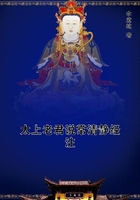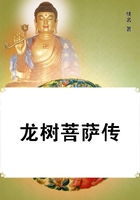A state (civitas) is the union of a number of men under juridical laws.These laws, as such, are to be regarded as necessary a priori-that is, as following of themselves from the conceptions of external right generally- and not as merely established by statute.The form of the state is thus involved in the idea of the state, viewed as it ought to be according to pure principles of right; and this ideal form furnishes the normal criterion of every real union that constitutes a commonwealth.
Every state contains in itself three powers, the universal united will of the people being thus personified in a political triad.
These are the legislative power, the executive power, and the judiciary power.1.The legislative power of the sovereignty in the state is embodied in the person of the lawgiver; 2.the executive power is embodied in the person of the ruler who administers the Law; and 3.the judiciary power, embodied in the person of the judge, is the function of assigning every one what is his own, according to the law (potestas legislatoria, rectoria, et judiciaria).
These three powers may be compared to the three propositions in a practical syllogism: the major as the sumption laying down the universal law of a will, the minor presenting the command applicable to an action according to the law as the principle of the subsumption, and the conclusion containing the sentence, or judgement of right, in the particular case under consideration.
46.The Legislative Power and the Members of the State.
The legislative power, viewed in its rational principle, can only belong to the united will of the people.For, as all right ought to proceed from this power, it is necessary that its laws should be unable to do wrong to any one whatever.Now, if any one individual determines anything in the state in contradistinction to another, it is always possible that he may perpetrate a wrong on that other; but this is never possible when all determine and decree what is to be Law to themselves.Volenti non fit injuria.Hence it is only the united and consenting will of all the people- in so far as each of them determines the same thing about all, and all determine the same thing about each- that ought to have the power of enacting law in the state.
The members of a civil society thus united for the purpose of legislation, and thereby constituting a state, are called its citizens; and there are three juridical attributes that inseparably belong to them by right.These are: 1.constitutional freedom, as the right of every citizen to have to obey no other law than that to which he has given his consent or approval; 2.civil equality, as the right of the citizen to recognise no one as a superior among the people in relation to himself, except in so far as such a one is as subject to his moral power to impose obligations, as that other has power to impose obligations upon him; and 3.political independence, as the light to owe his existence and continuance in society not to the arbitrary will of another, but to his own rights and powers as a member of the commonwealth, and, consequently, the possession of a civil personality, which cannot be represented by any other than himself.
The capability of voting by possession of the suffrage properly constitutes the political qualification of a citizen as a member of the state.But this, again, presupposes the independence or self-sufficiency of the individual citizen among the people, as one who is not a mere incidental part of the commonwealth, but a member of it acting of his own will in community with others.The last of the three qualities involved necessarily constitutes the distinction between active and passive citizenship; although the latter conception appears to stand in contradiction to the definition of a citizen as such.The following examples may serve to remove this difficulty.
The apprentice of a merchant or tradesman, a servant who is not in the employ of the state, a minor (naturaliter vel civiliter), all women, and, generally, every one who is compelled to maintain himself not according to his own industry, but as it is arranged by others (the state excepted), are without civil personality, and their existence is only, as it were, incidentally included in the state.The woodcutter whom I employ on my estate; the smith in India who carries his hammer, anvil, and bellows into the houses where he is engaged to work in iron, as distinguished from the European carpenter or smith, who can offer the independent products of his labour as wares for public sale;the resident tutor as distinguished from the schoolmaster; the ploughman as distinguished from the farmer and such like, illustrate the distinction in question.In all these cases, the former members of the contrast are distinguished from the latter by being mere subsidiaries of the commonwealth and not active independent members of it, because they are of necessity commanded and protected by others, and consequently possess no political self-sufficiency in themselves.Such dependence on the will of others and the consequent inequality are, however, not inconsistent with the freedom and equality of the individuals as men helping to constitute the people.
Much rather is it the case that it is only under such conditions that a people can become a state and enter into a civil constitution.But all are not equally qualified to exercise the right of suffrage under the constitution, and to be full citizens of the state, and not mere passive subjects under its protection.For, although they are entitled to demand to be treated by all the other citizens according to laws of natural freedom and equality, as passive parts of the state, it does not follow that they ought themselves to have the right to deal with the state as active members of it, to reorganize it, or to take action by way of introducing certain laws.














